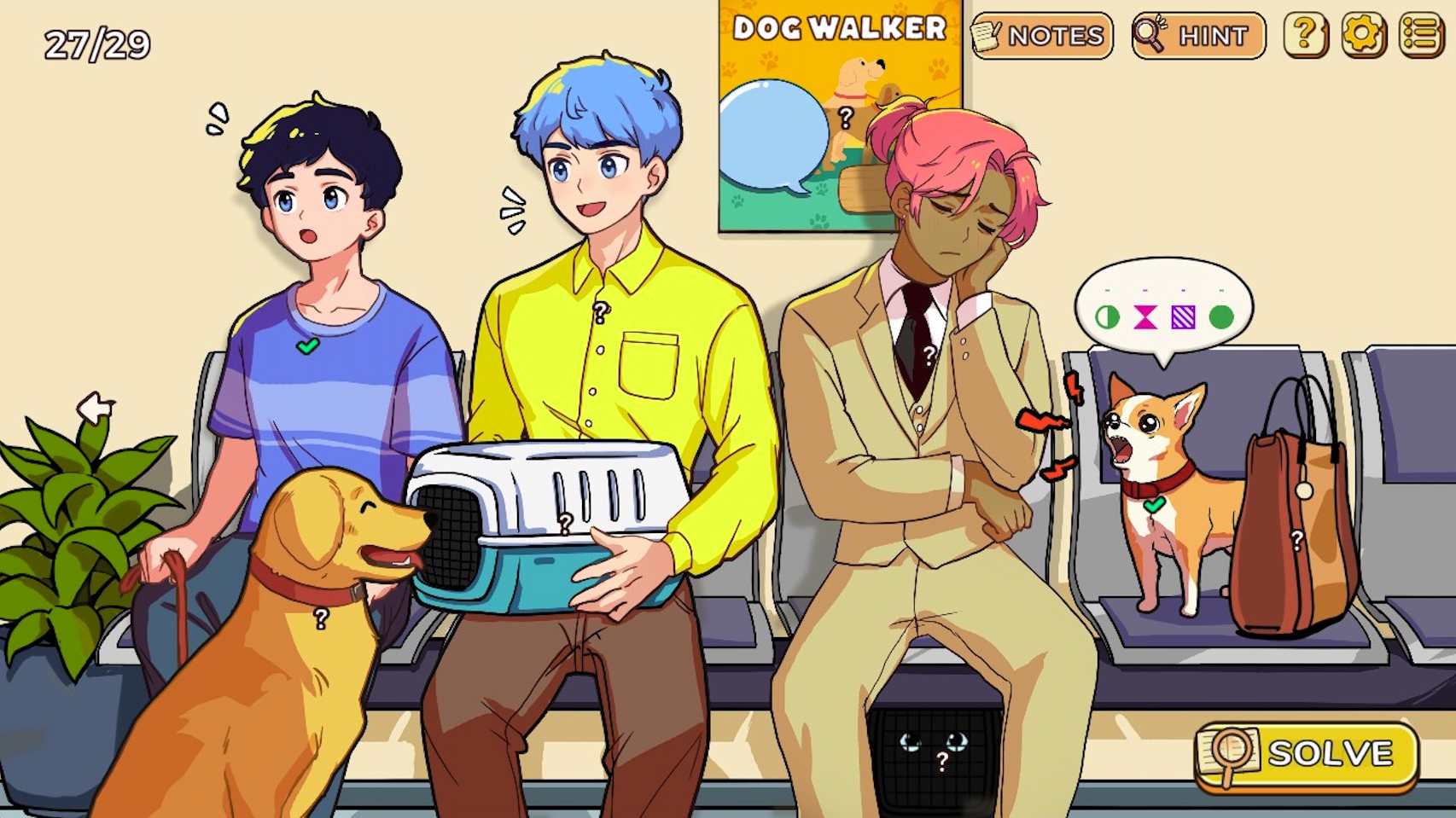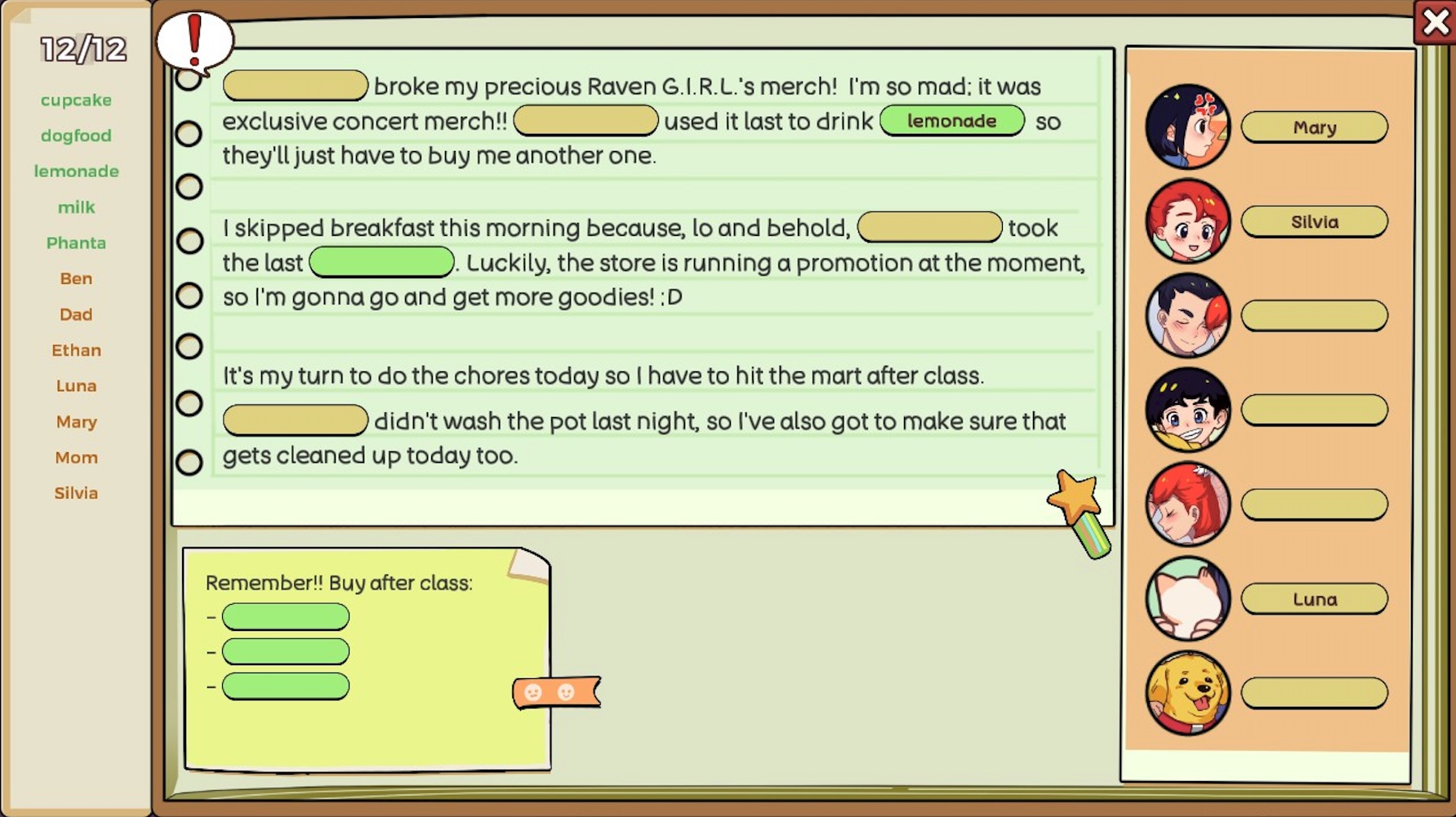Modern living is tough. You’ve got rent to think about, maintaining friendships, and understanding a difference of needs. For Little Problems protagonist Mary, there’s also the pressure of attending university, dealing with siblings and a pet, and so much more. This game takes cues from the Golden Idol franchise to explore these life challenges deeply, with a wonderful relatability in its depiction of everyday stress and drama.
With a ramping difficulty, you can see exactly how Mary’s life evolves through key moments, and experience her own anxieties about organisation and management. Where the Golden Idol series delves into the world of magic and mayhem, exploring strange deaths and uncanny sights, Little Problems is focused on somewhat cosier circumstances – but with the same level of clue-finding and discovery.
You might be trying to figure out exactly what happened to Mary’s pet at the vet clinic, or how another study group seemingly double-booked themselves for your room, but you’ll need to apply the same logical steps to discovering each clue, and analysing how Mary’s day has devolved.
Letting your mind wander in Little Problems
Little Problems manages an effective balance here. Clues are typically presented obtusely, but you get the scope and time to puzzle through each element. If you’re trying to work out a date and time for a particular event, you’ll need to look at nearby posters, or any comments delivered in dialogue. If a person is waiting for a particular club, and that club must start at a certain time on a Sunday, you can work backwards to figure out which club – and then, which books might be associated.
At the vet clinic, you might see strange symbols being uttered by a pet, which Mary seems to understand. The language doesn’t quite make sense on the surface, but using trial and error, you can figure out key words and nouns that might fit in a coherent string.

In one particular stage, you’ll be trying to reunite disparate parts of Mary’s friend group at a concert, using clues pasted on concert tickets, and social media posts. What this stage requires is an active brain to provide links between each clue. One person’s social media profile might indicate a love for a particular band. It might also reveal a recent university placement, a passion, or a connection with another social media profile.
What’s most novel about Little Problems is how it disguises this logic. At first, you’ll fully believe something is missing. That there’s a link in the chain that hasn’t been addressed. But as you spend time with each new scenario, you’ll eventually realise you’re part of the chain, and it’s up to you to provide the next link.
Sometimes, that does require trial and error on the actual puzzle screen – the game tells you when you’ve got two or more, or two or fewer, answers wrong – but as each piece falls into place, the bigger picture is revealed.
Testing your assumptions
Little Problems is not a game you can blast through all at once. It requires that time for puzzles to coalesce in your head. It’s not a matter of instantly understanding individual identity, it’s about making assumptions, then testing those assumptions.
If a woman has an old pocket watch with one surname, and is carrying an electric bill under a different surname, what might you assume? If a man is looking to re-cultivate a bee population, what sort of book might he be interested in? Sometimes, you’ll make a wrong assumption – as in life, really – but with all answers weaved together and depending on an overarching correctness, even your mistakes serve as important steps to solving the puzzle.

If you know there’s someone named Ben in your house, and by process of elimination it can only be someone capable of callously breaking a precious mug, who also requires dog food, then it becomes obvious that Ben is a dog. The solutions extend beyond context too. If you have a mother with red hair, and a father with black hair, siblings might have red or black hair, as well as the same surname. You can also make assumptions based on other shared physical features, on text message tone, dress style, dialogue, and more.
It makes the puzzles in Little Problems a real challenge to solve, but they tickle your mind as you progress. While some solutions are simple, others are head-scratching, and in the mix of clues you’ll eventually find your answers resolving. It’s a wonderful, satisfying process, and one that gives Little Problems a real spark. This game doesn’t do much different from others in the puzzle-mystery genre, but with its warmth, and the depth of its many challenges, it’s a wonderful adaptation that’s well worth playing for puzzle enthusiasts.
A PC code for Little Problems was provided to ScreenHub for the purposes of this review.
Discover more screen, games & arts news and reviews on ScreenHub and ArtsHub. Sign up for our free ArtsHub and ScreenHub newsletters.
Developer
Posh Cat Studios
Publisher:
Amplified Games
Release Date:
09 September 2025





